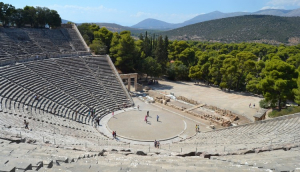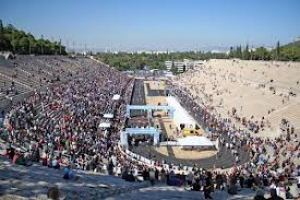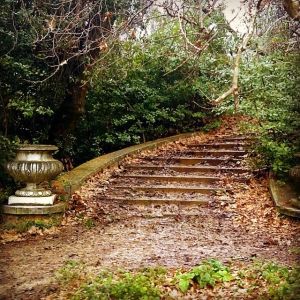Starting a business in Greece can be a rewarding venture given its strategic location, vibrant culture, and membership in the European Union. However, it requires understanding the local regulations, market conditions, and cultural nuances.
Here’s a comprehensive guide on what you need to start a business in Greece.
1. Understanding the Business Environment
Economic Climate
Greece has experienced economic challenges in the past decade but is on a path to recovery with increasing opportunities for business growth, particularly in tourism, shipping, agriculture, and renewable energy sectors.
Market Research
Conduct thorough market research to understand local demand, competition, and consumer behavior. Identify market gaps and opportunities specific to your industry.
2. Legal Requirements
Choosing a Business Structure
Select the appropriate legal form for your business:
- Sole Proprietorship (Ατομική Επιχείρηση): Simplest form, suitable for small businesses and freelancers.
- Limited Liability Company (Εταιρεία Περιορισμένης Ευθύνης - ΕΠΕ): Popular choice offering limited liability protection.
- Private Company (Ιδιωτική Κεφαλαιουχική Εταιρεία - ΙΚΕ): Flexible and requires low initial capital.
- Societe Anonyme (Ανώνυμη Εταιρεία - AE): Suitable for larger businesses, requiring higher initial capital.
Business Registration 1. Company Name Approval: Obtain approval for your business name from the General Commercial Registry (GEMI).
2. Tax Identification Number (AFM): Apply for a AFM from the local tax office (DOY).
3. Register with GEMI: Register your business with GEMI, providing necessary documents such as the company’s articles of association.
4. Social Security Registration: Register with the Social Insurance Institute (IKA) for employee social security.
Licenses & Permits Depending on your business activity, you may need specific licenses and permits. For example, food-related businesses require health permits, while construction businesses need building permits.
3. Financial Considerations Initial Capital Determine the initial capital required based on your business structure. For instance, an IKE requires a symbolic capital of €1, while an AE needs a minimum of €24,000.
Banking Open a business bank account in Greece. This is essential for managing transactions and complying with financial regulations.
Funding Options Explore various funding options:
- Personal Savings: Self-fund your business if you have sufficient capital.
- Bank Loans: Secure loans from Greek banks, provided you have a solid business plan.
- EU Grants: Utilize EU funds and grants available for startups and SMEs in Greece.
- Investors: Seek investment from private investors or venture capital firms.
Taxation
Understand the Greek tax system:
- Corporate Tax: Currently set at 24% on profits.
- VAT (Value Added Tax): Standard rate is 24%, with reduced rates for certain goods and services.
- Social Security Contributions: Employers contribute a percentage of employee salaries to social security.
4. Setting Up Operations
Location
Choose a strategic location based on your business needs. Consider factors like foot traffic, accessibility, and proximity to suppliers and customers.
Office Space
Lease or purchase office space. Ensure it meets legal requirements for your type of business.
Hiring Employees
Follow these steps to hire employees:
- Recruitment: Advertise job openings and conduct interviews.
- Employment Contracts: Draft and sign employment contracts outlining terms and conditions.
- Employee Registration: Register employees with IKA and other relevant authorities.
- Compliance: Ensure compliance with Greek labor laws regarding wages, working hours, and employee rights.
Technology & Equipment Invest in necessary technology and equipment. This includes computers, software, machinery, and other tools essential for your business operations.
5. Marketing & Networking Branding Develop a strong brand identity that resonates with Greek consumers. This includes a compelling logo, tagline, and brand message.
Online Presence Create a professional website and engage on social media platforms popular in Greece, such as Facebook, Instagram, and LinkedIn.
Advertising Invest in local advertising, both online and offline. Utilize Google Ads, social media ads, and traditional media like newspapers and radio.
Networking Join local business associations and attend networking events. Building relationships with other business owners and industry professionals can open up new opportunities.
6. Continuous Compliance & Growth Regular Audits Conduct regular financial audits to ensure compliance with Greek regulations and maintain financial health.
Legal Updates Stay informed about changes in Greek business laws and regulations to avoid any legal issues.
Expansion Plan for future growth by exploring new markets, expanding your product or service offerings, and investing in innovation.
Starting a business in Greece requires careful planning, compliance with local regulations, and an understanding of the market. By following these steps and leveraging the available resources, you can establish and grow a successful business in this beautiful and dynamic country.
If you need assistance or have any questions about starting your business in Greece, feel free to contact us. We’re here to help you every step of the way.
















